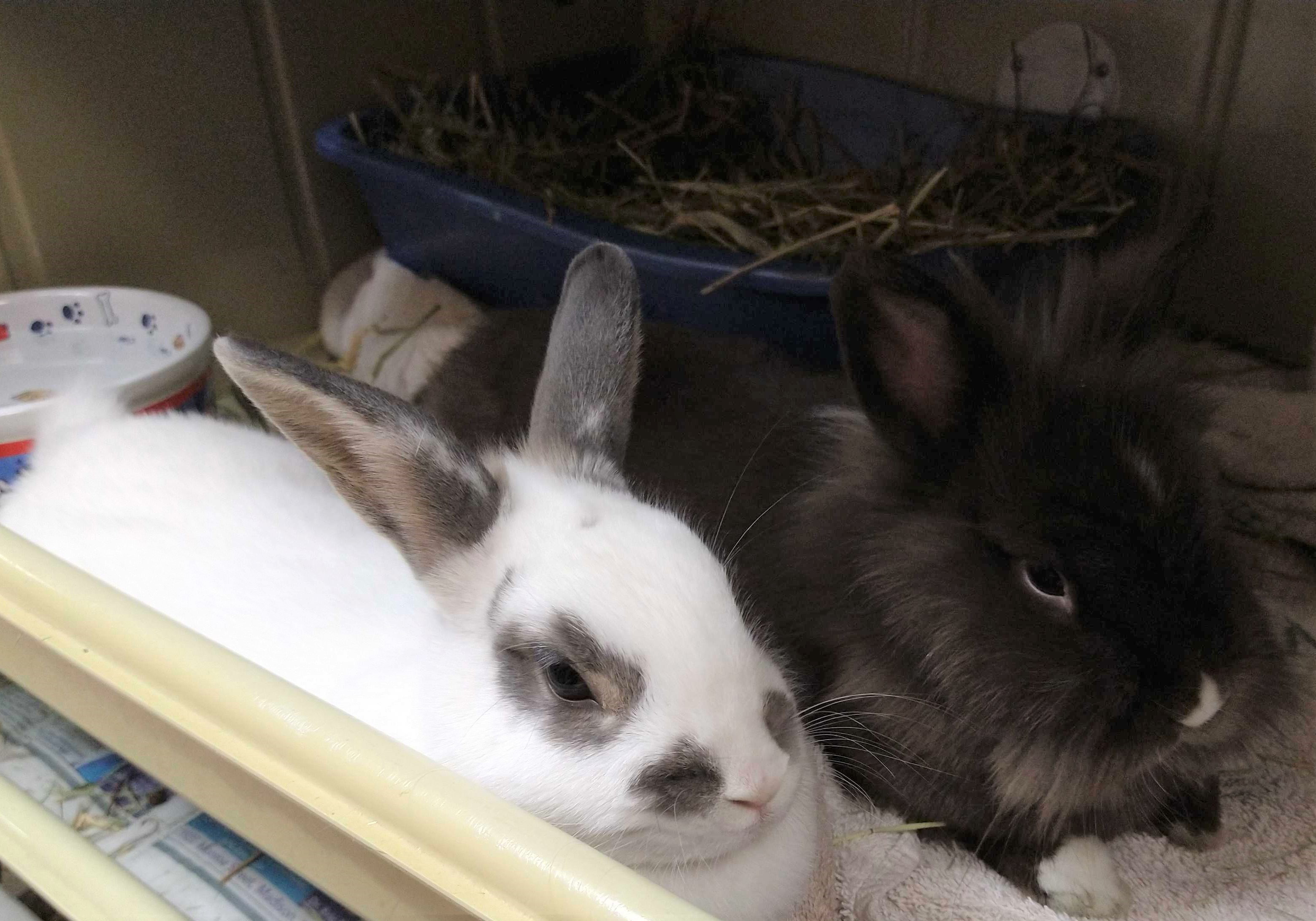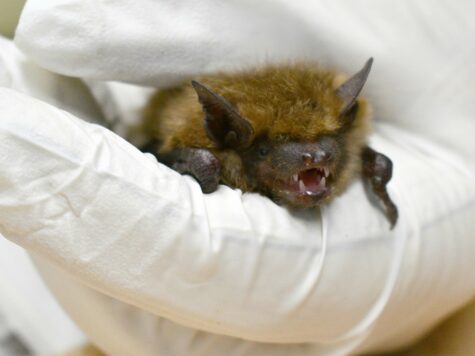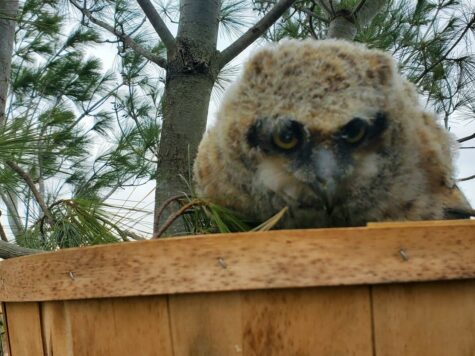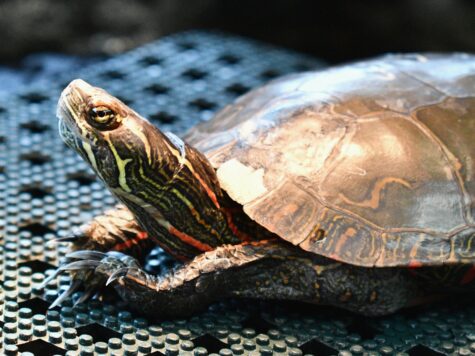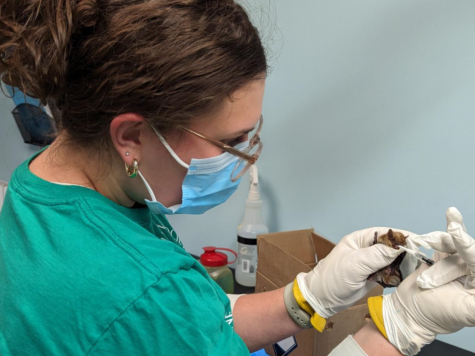Rabbits love having a rabbit friend, but they tend to be very picky about who they want to share their life with. Just like humans, it’s not always “love at first sight.” Rabbits need a bunny date to see if they’ll get along with each other, and even more bunny dates and time in order to become bonded.
Dane County Humane Society (DCHS) offers bunny dates to pet parents who are considering adding a second house rabbit to their home.
Parents who have bonded rabbits before don’t always need a bunny date as they likely know what bun would be a good fit for their friend, according to Aisha Jansen, DCHS Shelter Resource Supervisor. Also, parents who are content with housing their rabbits separately can forego the bunny date, but they will be sent home with reading material on bonding rabbits should they change their mind, she explains.
In addition, DCHS offers “marriage counselling” to pet parents in which Shelter Resource Counselors provide helpful tips and guidance for bonding rabbit pairs.
DCHS doesn’t offer cat and dog meets because they need a less stressed environment and could be counterproductive to goal. For tips on introducing your new cat or dog to other animals in the home, click here.
Joan Johnson, senior animal caretaker at DCHS (and our rabbit expert) says, “I would always recommend doing a bunny date to see if the rabbits are interested in each other. You want to make sure there is a good possibility they will bond.”
“One of the nicest things about having a bunny date at the shelter is that you can see what good behavior looks like and how to slow down unwanted behaviors,” Joan says. “It helps a lot when you can start doing these things with someone who knows how to do it and can help you learn the proper way. It will give you the confidence you need to know you are reacting correctly in a given situation and not overreacting or not just watching when you should be interacting.”
Another benefit to having a bunny date at the shelter is we are a neutral space for rabbits, who tend to be very territorial.
While the bunny date at the shelter helps start the process of learning whether or not two rabbits can get along, getting them to bond takes more bunny dates. In fact, it can take as much as three months for two rabbits to bond, according to Joan.
Joan offers a number of rules to follow to help with the bonding process:
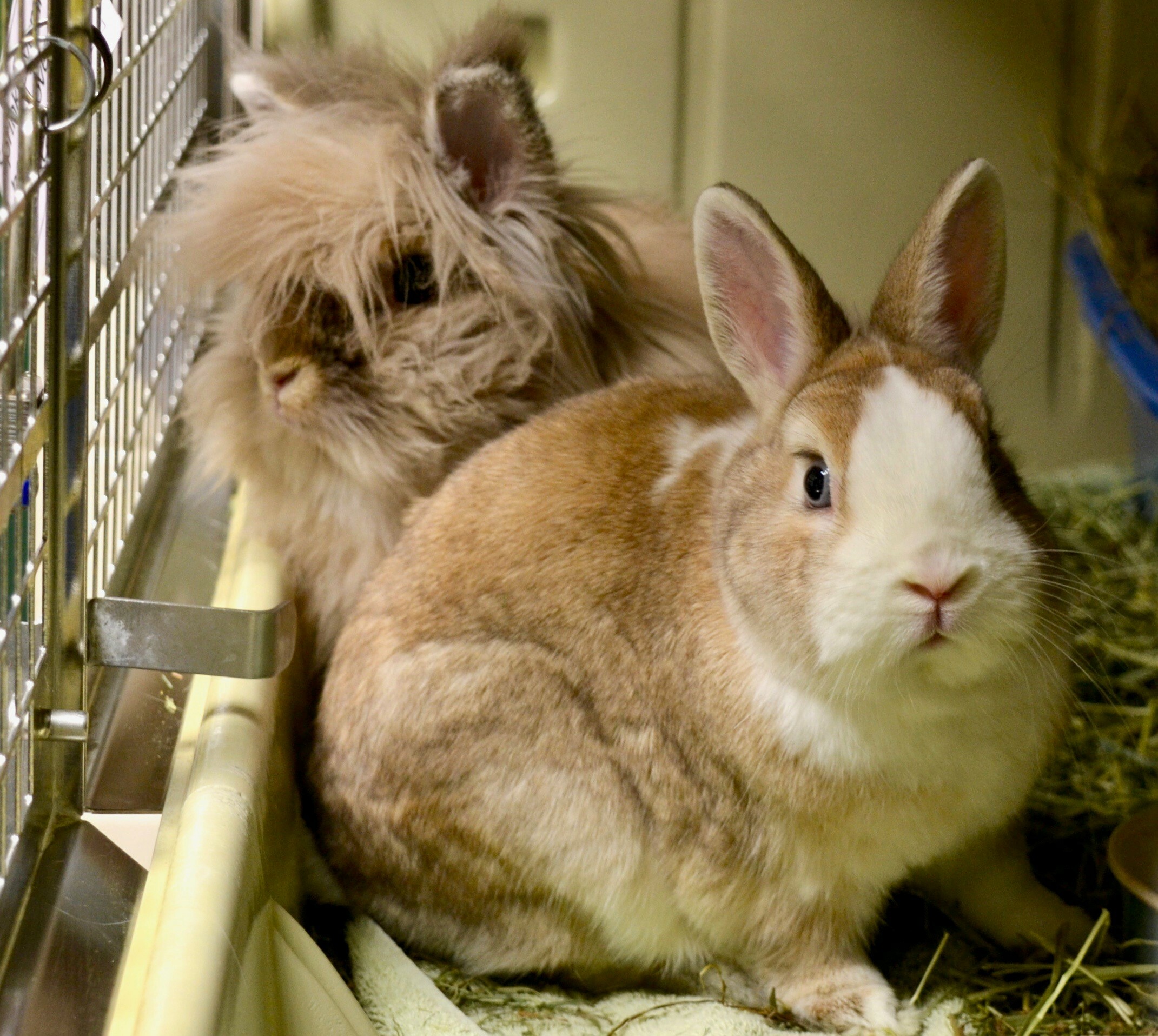
Both Rabbits Must be Spayed/Neutered
Usually it’s easiest to bond a female with a male, but both need to be altered or they’ll only have babies on the brain, according to Joan.
“Having only one rabbit altered will not work either,” Joan says. An unneutered male will not leave the female alone which will lead to fights, while a female that is not spayed will expect the male to give her babies and when he doesn’t, she’ll push him away, according to Joan.
Two female rabbits can become bonded, but it could take longer, and male-male rabbits are more difficult to bond because they can be very aggressive towards each other.
“Baby bunnies that haven't sexually matured yet don't usually care who they are with and older rabbits are not as picky either.” But, Joan warns, “Just because the baby rabbit doesn't care, doesn't mean your rabbit will like them. Likewise, just because rabbits are older doesn't mean they will be easy to bond with.”
After bringing a new bun home, give them time to get used to the new smells and sounds of their new surroundings first. The new rabbit can be housed in a cage in the same room as the other rabbit, but keep the cages far enough so neither could reach across and bite through the bars.
Also, don’t allow one rabbit to run around the room free while the other rabbit remains in the cage, as this can cause stress to the rabbit in the cage, according to Joan.
If the new rabbit's cage has to go in another room, that’s fine too. “Then you can swap bedding, or litter boxes, toys from each of the rabbits and give it to the other rabbit so they can smell each other and get a little more familiar with each other that way,” Joan says.
“If they are eating well and seem to be adjusting to their new home, you can start with the dating process,” Joan adds.
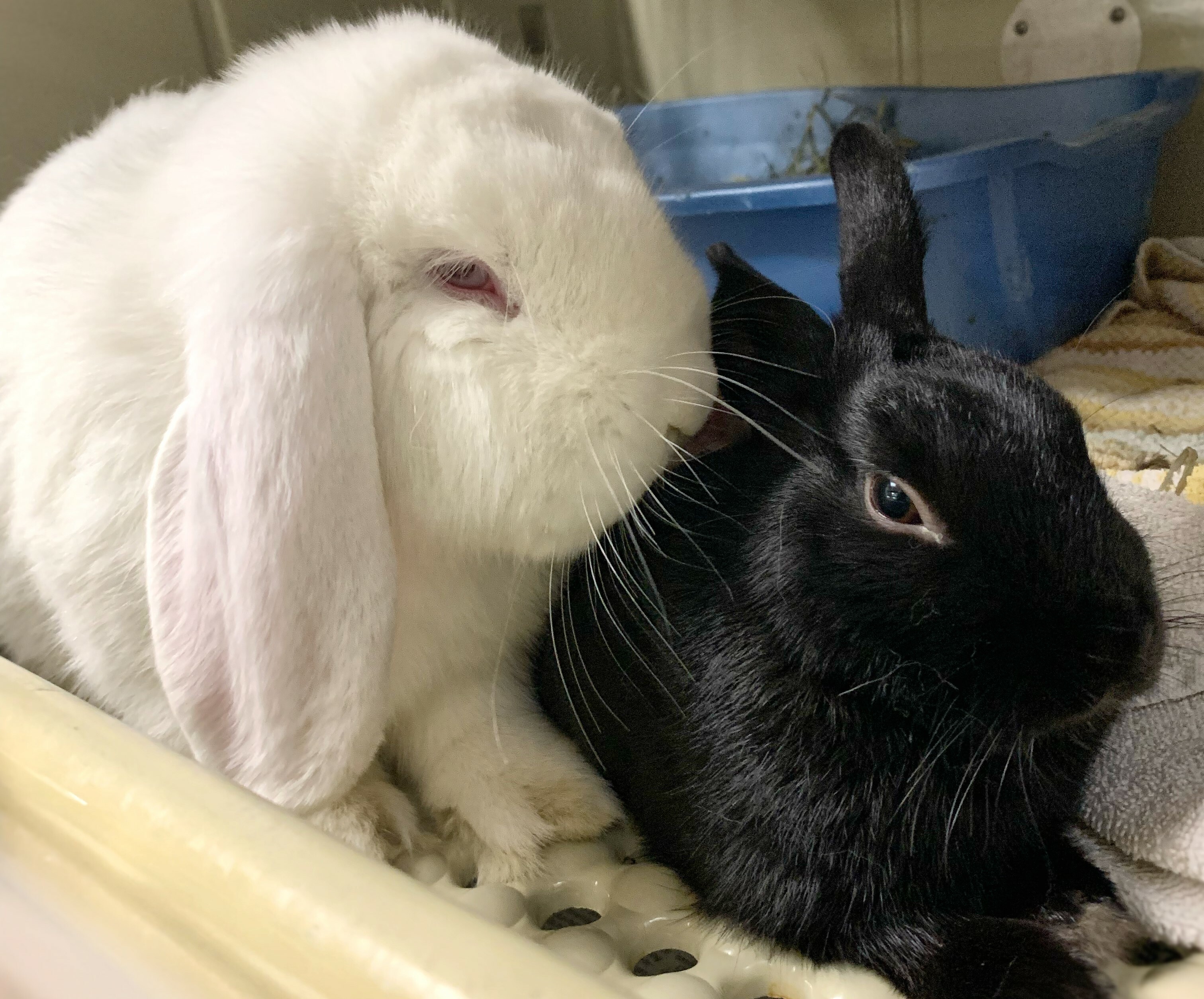
Hold Bunny Dates in Neutral Territory
Joan suggests holding bunny dates in a room that is large enough for the rabbits to have space away from each other but small enough that you can pet them to slow things down if necessary.
It’s very important to hold bunny dates in neutral territory. “If you try doing them where your rabbit runs, your rabbit will be very defensive and try to kick the new rabbit out of their house,” Joan explains. “It is their house and they don't want a new rabbit taking it away.”
If the rabbit is allowed to run the entire house, Joan suggests using a bathtub or cordon off a spot in the basement with an exercise pen. If using a bathroom to hold bunny dates, Joan advises blocking off the toilet area as it can be difficult to reach should the rabbits begin to squabble.
Joan also suggests not having a litter box in the room during the bunny date because the rabbits could fight over it and it can distract them from focusing on the date. “You need to keep EVERYTHING neutral,” she adds.
Pet parents should be present during all times of the bunny date so they can slow down and stop any unwanted behaviors, according to Joan.
What are Normal Behaviors During Bunny Dates?
“A rabbit will not eat, clean themselves, or stretch out on the floor if they feel threatened, so those are signs they are comfortable with the rabbit and people in the room,” Joan says. “Grooming, staying near the other rabbit, not panicking every time they are being mounted, and not trying to hide as if scared of the other rabbit, are all good things.
“Having to slow down or stop a behavior is normal. It has nothing to do with whether it will work or not,” Joan explains.
Nipping is normal during bunny dates. A nip does not break the skin, but often leaves a mouthful of fur behind.
Ignoring each other is a normal part of bunny dates, according to Joan. Ideally, the rabbits will groom themselves or just lay down and relax like the other bun is not in the room. Rabbits grooming each other is a behavior one hopes to see during a bunny date.
“Rabbits will push their head under the other rabbit's chin to try to get them to groom their head and face,” Joan says. “Once they are bonded, both rabbits will groom each other. It isn't always equal grooming, sometimes one rabbit grooms the other more than they get groomed back.”
Some rabbits will wag their tails during a bunny date, moving their tail from side to side, which is a form of flirting.
One rabbit may mount the other during dates. “Mounting is how a rabbit determines who is dominant,” Joan explains.
“It is nice to see how each rabbit reacts to being mounted by the other rabbit during your initial bunny date,” she says, but adds sometimes neither bunny will mount during that initial meeting.
During the initial date, if one rabbit attempts to mount and the other rabbit turns to fight, they may not be a good match and a you may need to select a different bun to bond with your rabbit, according to Joan.
“During dating you will see them both mounting each other. They are trying to establish who is dominant,” Joan explains. “It is okay to let them mount the other as long as the one being mounted isn't panicking and trying hard to get away.”
When mounting, it’s normal for the mounting rabbit to hold onto the back of the other rabbit’s neck. Some rabbits even pull fur out by the mouthful while mounting, according to Joan. “This is rude, but not mean.” In fact, rabbits pull their own fur out when building a nest.
“Always pet both rabbits after any behavior you stop, because this will slow things down,” Joan says, “It will help them both to be calm and happy.”
Once the pair are bonded, they will no longer mount each other, but Joan notes some rabbits will mount the other if they are stressed.
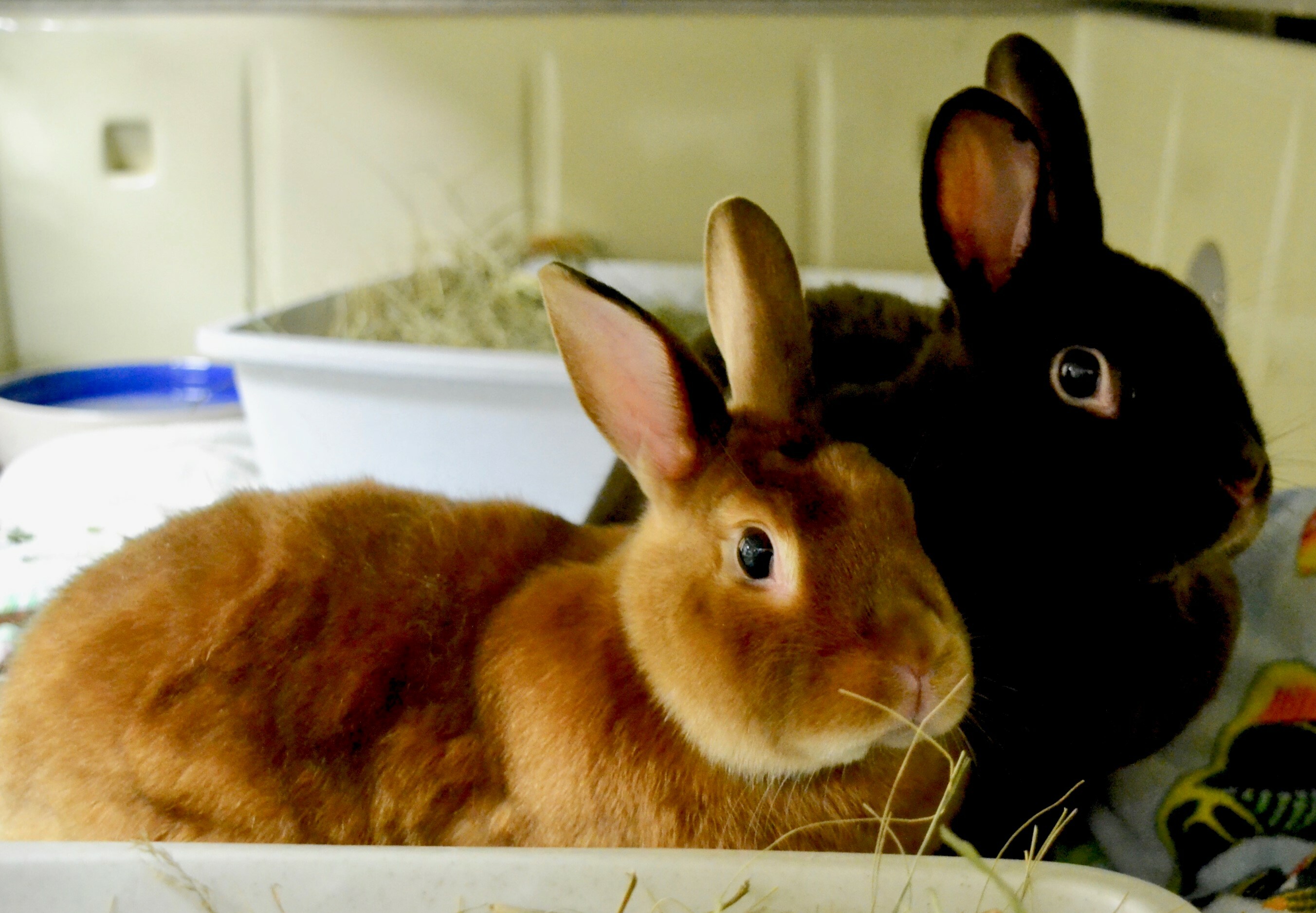
End Dates on a Good Note
Bunny dates should be short at first, and become longer depending on the rabbits’ comfort. If one or both seem more stressed or more anxious, it’s okay to shorten the date, according to Joan.
“Doing bunny dates every day can get them bonded quicker, but if they get into a big squabble it isn't a bad idea to give them a day or two off,” Joan says.
But, Joan notes, “It’s important to always end the bunny date on a good note. Even if they just got into a big fight and you had to separate them, you want to pet each rabbit and make them feel calm and happy before putting them away.”
If the rabbits are not made happy before going back to their cages, they’ll dwell on their negative feelings for the other rabbit and future dates will be more difficult and have more tension, according to Joan.
The rabbits do not need to be near each other when ending the bunny date on a good note.
How Can You Tell the Rabbits have Bonded?
When you notice both rabbits are immediately comfortable with each other as soon as the date starts, it is a sign you are close to having them bonded, according to Joan. Other signs to watch for include: grooming each other, not trying to mount each other anymore, lying stretched out next to each other.
The next step then is to move them to an area the first rabbit roams frequently. “If their cages are in that room, shut the cage doors and do a bunny date in that area,” Joan suggests. “If it doesn't go well, continue to do your dates in a neutral area. If it goes well, open the cage doors and see how they do when they can go in and out of the cages. If that goes well, it’s time to close them in a cage together.”
At first, after housing them together, keep an eye on them to make sure their doing well and listen for any problems. If all goes well, the rabbits are bonded and can be housed in one large cage together sharing one water and one food bowl, according to Joan.
Once bonded, Joan says, “You should always bring them everywhere together, even if only one rabbit has to go somewhere. They can be stressed when they are separated and not together, and they will comfort each other when they are frightened or not feeling well.”
Congratulations on bonding your two buns! Remember, if you should need any help in the future, DCHS is here for you and your rabbit family.
